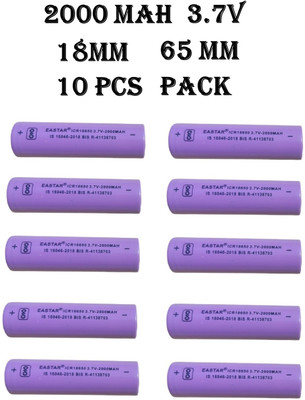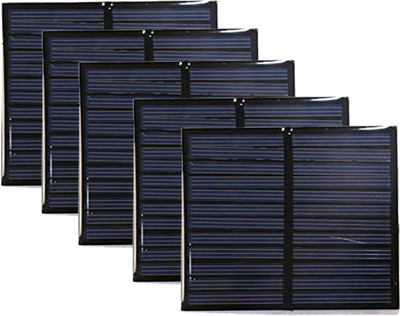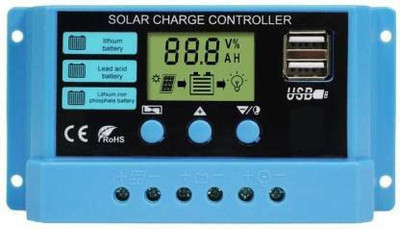
Litpax 12.8V-60AH Lithium Phosphate Battery With BMS Lithium Solar Battery (12.8 V)
Price: Not Available
Currently Unavailable
Warranty
Manufacturing defectes covered in warranty. we pickup products direct from customer and give a solution
Highlights
- Type: Lithium
- Height: 13.5 cm
Description
A 12.8V 60Ah lithium iron phosphate (LiFePO4) battery is a specific type of rechargeable lithium-ion battery with distinctive characteristics. Let's break down the description:
Voltage (V): The battery has a nominal voltage of 12.8 volts. This is the average voltage of the battery during discharge. When fully charged, the voltage may be slightly higher, and it decreases as the battery discharges.
Capacity (Ah): The battery has a capacity of 60 ampere-hours (Ah). This indicates the amount of charge the battery can deliver over a specified period. In practical terms, a 60Ah battery can theoretically provide a current of 1 ampere for 100 hours, 2 amperes for 50 hours, and so on.
Chemistry: The battery uses lithium iron phosphate (LiFePO4) as the cathode material. LiFePO4 batteries are known for their safety, stability, and long cycle life. They are commonly used in applications where safety and longevity are crucial.
Rechargeable: Lithium iron phosphate batteries are rechargeable, meaning they can be charged and discharged multiple times. The number of charge cycles a battery can undergo before its capacity significantly degrades depends on various factors such as temperature, charging/discharging rates, and the specific battery design.
Applications: LiFePO4 batteries are used in a variety of applications, including solar energy storage, electric vehicles (EVs), uninterruptible power supply (UPS) systems, and more. The high energy density and relatively stable voltage make them suitable for many different uses.
Voltage Stability: LiFePO4 batteries have a more stable voltage profile compared to other lithium-ion batteries. This stability is beneficial for applications where a consistent voltage level is required.
Safety: Lithium iron phosphate batteries are considered safer than other lithium-ion battery chemistries due to their thermal and chemical stability. They have a lower risk of thermal runaway, a phenomenon that can lead to overheating and, in extreme cases, combustion in other types of lithium-ion batteries.
Weight and Size: LiFePO4 batteries tend to be heavier and larger than some other lithium-ion batteries with similar capacity. This can be a consideration in applications where weight and size are critical factors.
Read More
Specifications
In The Box
| Sales Package |
|
General
| Brand |
|
| Model Number |
|
| Type |
|
| Voltage |
|
| Capacity Rating |
|
| Capacity |
|
| Net Quantity |
|
Dimensions
| Width |
|
| Height |
|
| Depth |
|
| Weight |
|
Warranty
| Warranty Summary |
|
| Service Type |
|
| Covered in Warranty |
|
| Not Covered in Warranty |
|
Questions and Answers
Q:Inverter 12 volt use hoga
A:YES SINE WAVE
Litpax
Flipkart Seller0
0
Report Abuse
Q:Can this battery be charged with my old mppt solar charge controller (without lithium battery support solar controller)
A:yes sir
Litpax
Flipkart Seller0
0
Report Abuse
Q:2 DC fan 60 Watt ka kitna der chalega
A:1 hours
Litpax
Flipkart Seller1
1
Report Abuse
Didn't get the right answer you were looking for
Safe and Secure Payments.Easy returns.100% Authentic products.
Back to top








